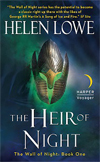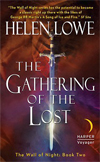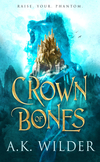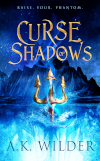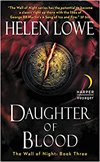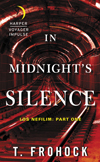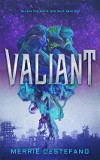.
I promised this post series would include leaders from SciFi as well as Fantasy, and have already featured the great Pyanfar Chanur. This month, I'm returning to the SciFi greats with Dr Mensah, from All Systems Red by Martha Wells.
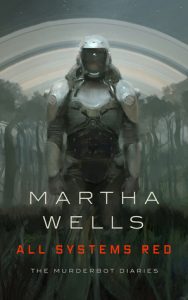 |
Those of you who know (and I imagine it's quite a few ;-) ), will know that All Systems Red was the very first instalment in the Murderbot series, which was recently released on Apple TV. You may also know that Dr Mensah is prominent throughout the novella quartet that founded the series.
 |
Nonetheless, her character and leadership chops were established in All Systems Red, which is also the basis for the smallscreen show, hence my focus.
Now for what qualifies Dr Mensah's leadership for the "greatness" tag. (Totes imho, of course!) First and foremost, she emulates the immortal words of Rudyard Kipling (paraphrased) by keeping her head when all those about her are losing theirs.
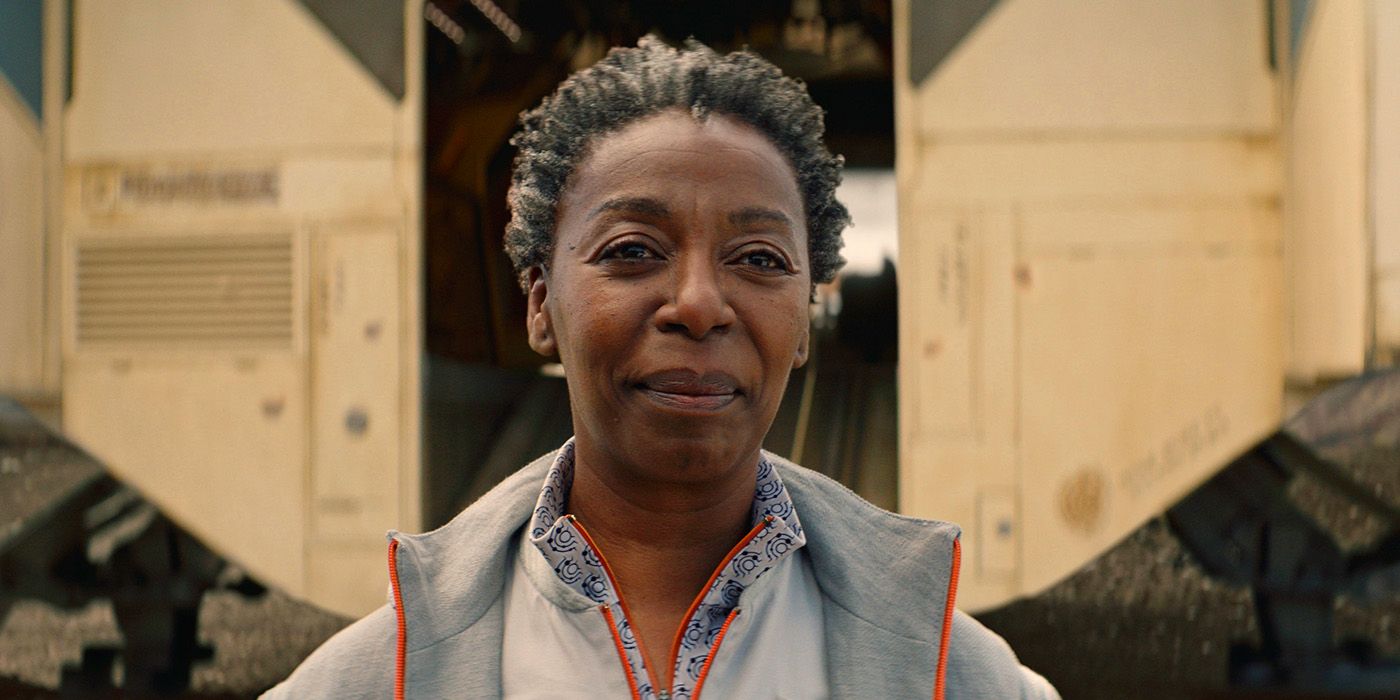 |
| Dr Mensah |
To be fair, we're talking really tough and challenging circumstances, including hostile megafauna trying to eat a crew member and the wholesale murder of another research crew on the same planet, before her own team become the next target for the mysterious killers. Plenty of grounds for losing one's head -- but Dr Mensah never loses her cool, or her nerve.
 |
The other part of the Kipling quote is about blame -- but Dr Mensah is not one of those who wastes time on blame when events go west. Instead she takes action and responsibility, holding her crew together by her personal example. As leader, she listens to others' input, but makes the tough decisions to ensure their survival.
And as Murderbot, the human-robot construct at the center of the series puts it, Dr Mensah "really is an intrepid galactic explorer." When the chips are down and the going gets uncompromisingly tough, she has his back.
 |
| Having Murderbot's back -- with a mining drill! |
Finally, Dr Mensah is not the kind of leader that leaves a team member behind -- not even when the team member is a human-bot construct that Corporation Space (which governs a large swathe of galactic space in this series) designates as equipment and disposable.
 |
It speaks to her character, and leadership, that once she realizes Murderbot is a sentient entity, she won't continue to treat it as a machine. In other words, Dr Mensah is not just level-headed, responsible, courageous under fire, and both open- and tough-minded -- she's ethical as well.
So when it comes to great leadership in the speculative fiction 'verse, I think it's indisputable: Dr Mensah is the complete package.

About Helen Lowe

Helen
Lowe is an award-winning novelist, poet, and lover of story. With four
books published to date, she is currently completing the final
instalment in The Wall Of Night series.
.
Helen posts regularly on her “…on Anything, Really” blog, monthly on the Supernatural Underground, and tweets @helenl0we.
Prior Posts: Great Leaders in Speculative Fiction ~
Where To Find 'Em & Why They Rock
February: Mara of the Acoma in the "Empire" series by Raymond E Feist & Janny Wurts
March: Kaladin and Dalinar in "The Stormlight Archive" by Brandon Sanderson
April: Pyanfar Chanur in "The Pride of Chanur" series by CH Cherryh
May: John Aversin in Dragonsbane, by Barbara Hambly
June: Katniss Everdeen in "The Hunger Games" Trilogy, by Suzanne Collins
July: Ulric of the Nadir in Legend by David Gemmell
August: Signe de Barbentain in A Song for Arbonne by Guy Gavriel Kay
































